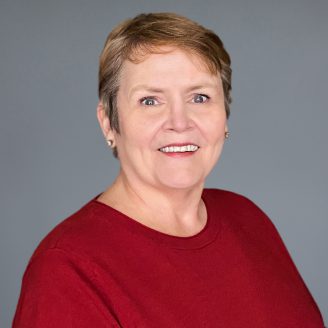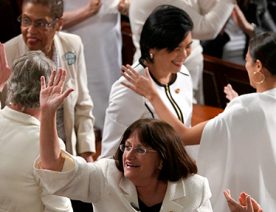
July 8, 2025
A large majority of adults feel the cost of child care is a major problem in the United States. Many also think the risks of pregnancy and childbirth and the cost of fertility treatments are major problems. But few are concerned about declining birth rates even as Vice President JD Vance pushes pronatalist policies in hopes of reversing the United States’ falling birth rate.
More women than men and more Democrats than Republicans say the cost of childcare, fertility treatments, and maternal health risks are major problems. Concern for declining birth rates does not differ significantly by gender or partisanship.
Black adults and Hispanic adults are more likely than white adults to say risks associated with childbirth (61% and 45% v. 34%) and declining birth rates (37% and 42% v. 23%) are major problems.
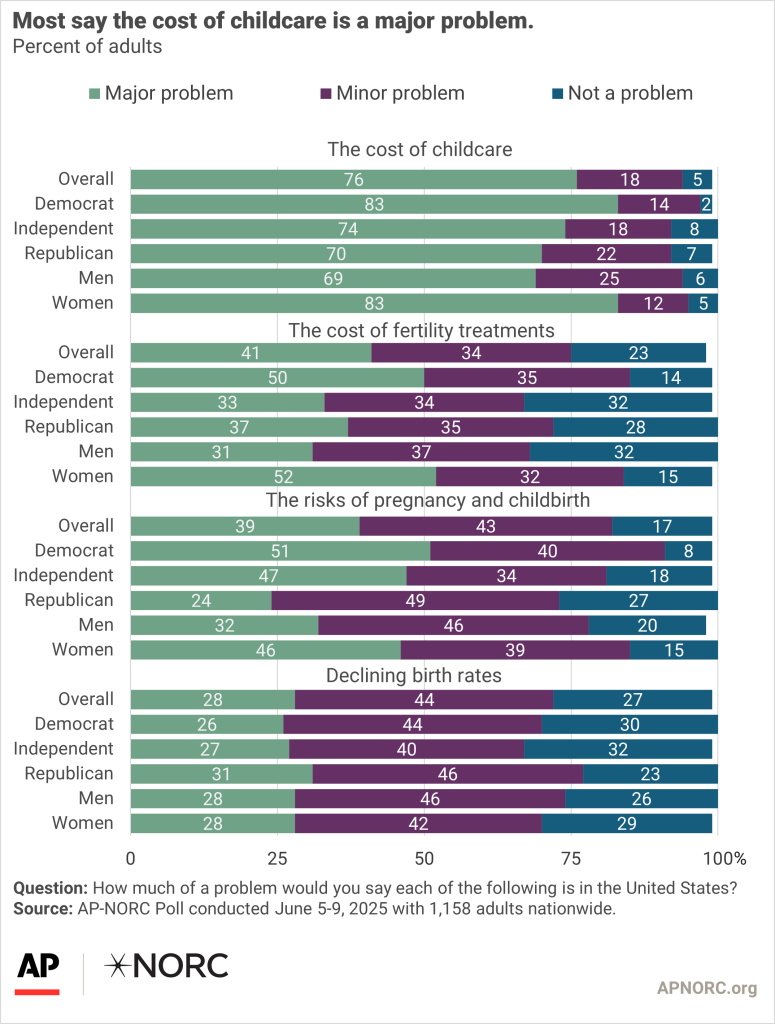
Fifty-five percent want the federal government to make improvements in health outcomes for pregnant women a high priority. Slightly fewer feel the same about helping working families pay for childcare or making it easier for parents to leave the workforce to raise their children. Only 1 in 10 say encouraging families to have more children should be a high priority for Washington. Sixty-two percent of the public, including 57% of Republicans, feel it should be a low priority.
More Democrats and women than Republicans or men want the federal government to prioritize improving health outcomes for pregnant women, helping working families pay for childcare, or making it easier for parents to leave the workforce to raise their children.
Black adults are more likely than white adults to say the federal government should concentrate on improving maternal health outcomes (70% v. 49%) and helping families pay for childcare (65% v. 41%). White adults are more likely than Hispanic adults to consider encouraging larger families a low priority (68% v. 43%).
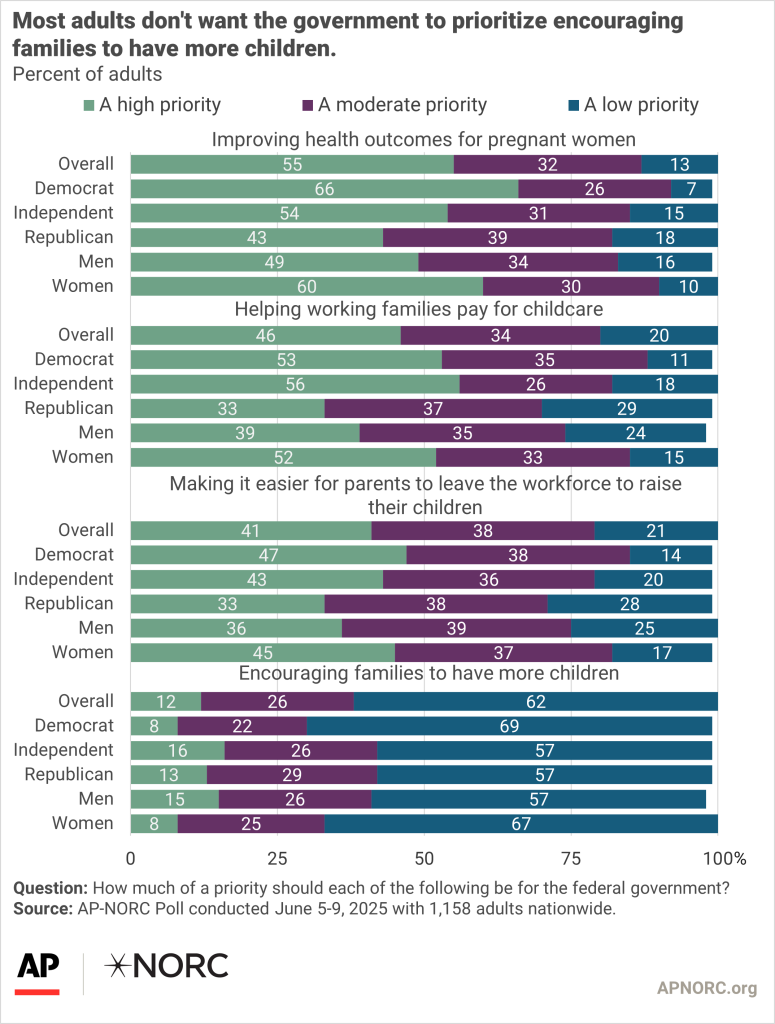
Most support a federal requirement that employers provide paid family leave for new parents. There is also support for federal free or low-cost daycare for children too young to attend public school. About half of the public favors a requirement that insurance companies cover the cost of fertility treatments. There is less backing for the idea of $5,000 baby bonuses to mothers after a new baby is born.
Democrats are more likely than Republicans to favor paid family leave requirements, free or low-cost daycare, and insurance covered fertility treatments.
And more women than men support paid family leave (73% v. 61%) and free or low-cost childcare (68% v. 59%).
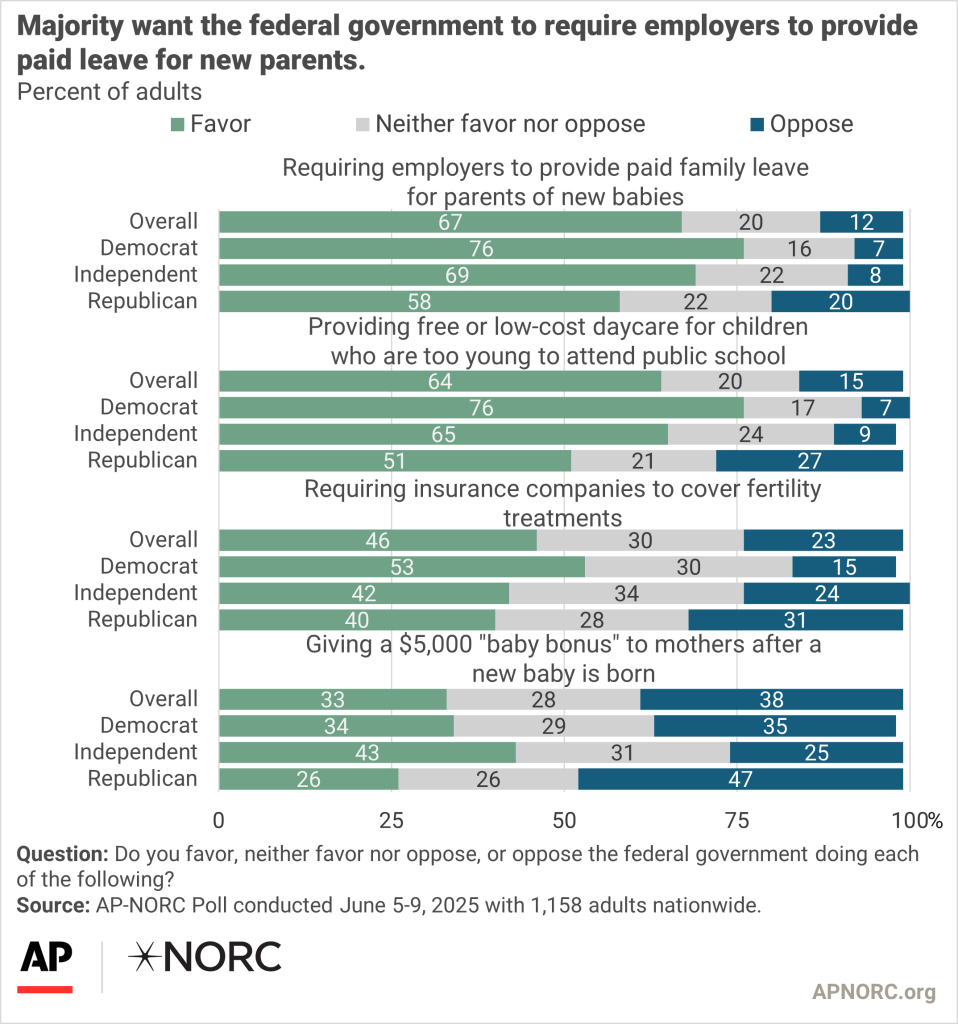
A majority of the public has no preference for how many children families should have or whether or not people should have children late in life. About half do not feel strongly one way or the other if more parents leaving the workforce to raise their children is a good or a bad thing.
More Republicans than Democrats say it is good for the future of the country when more parents leave the workforce to raise their children and when more families have three or more children. Republicans also are more likely than Democrats to say it would be bad for the country if families have fewer than two children.
Men are more likely than women to say it would be a bad thing if families have fewer than two children (20% v. 9%). And white adults are more likely than Black adults or Hispanic adults to think more families having three or more children would be bad for the country (26% v. 15% and 14%).
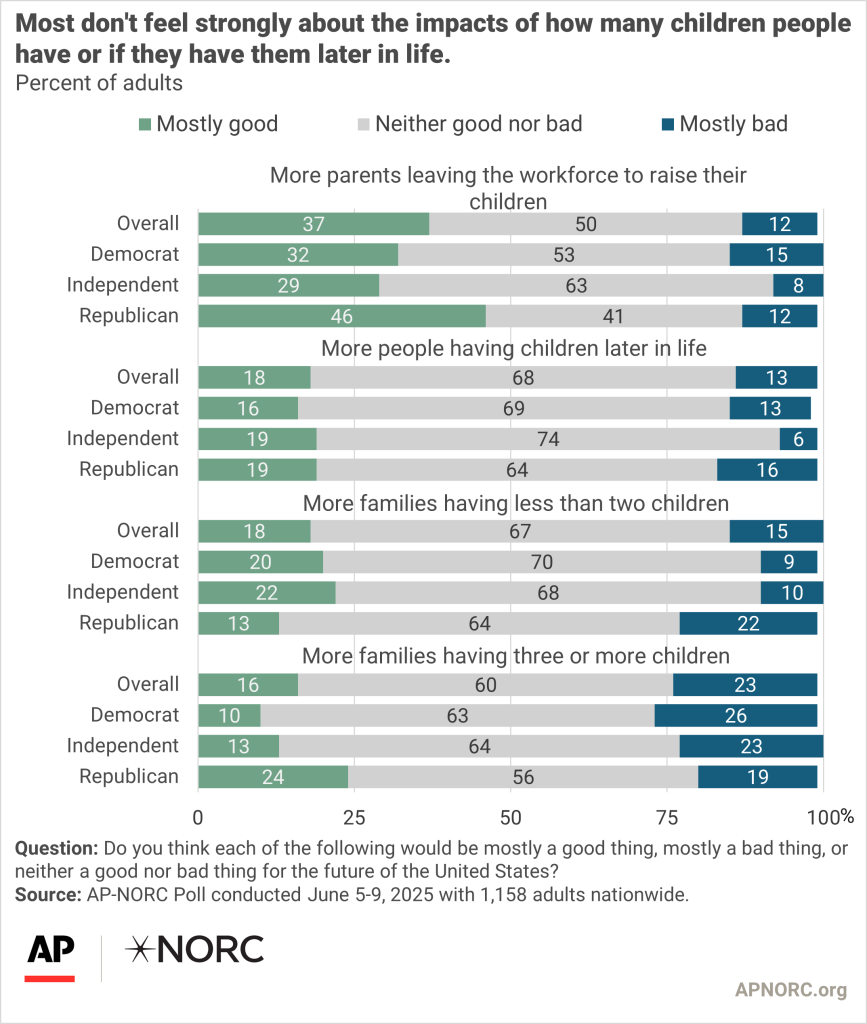
About half of adults feel children with two parents are better off with one stay-at-home parent while 4 in 10 do not think it matters either way. Only one in ten say children are better off with both parents working full-time.
Republicans are more likely than Democrats to say children are better off if one parent stays home to raise the children (62% v. 32%) and more men than women agree (53% v. 39%).
Hispanic adults and black adults are more likely than white adults say children are better off if both parents work full-time (19% and 21% v. 8%).
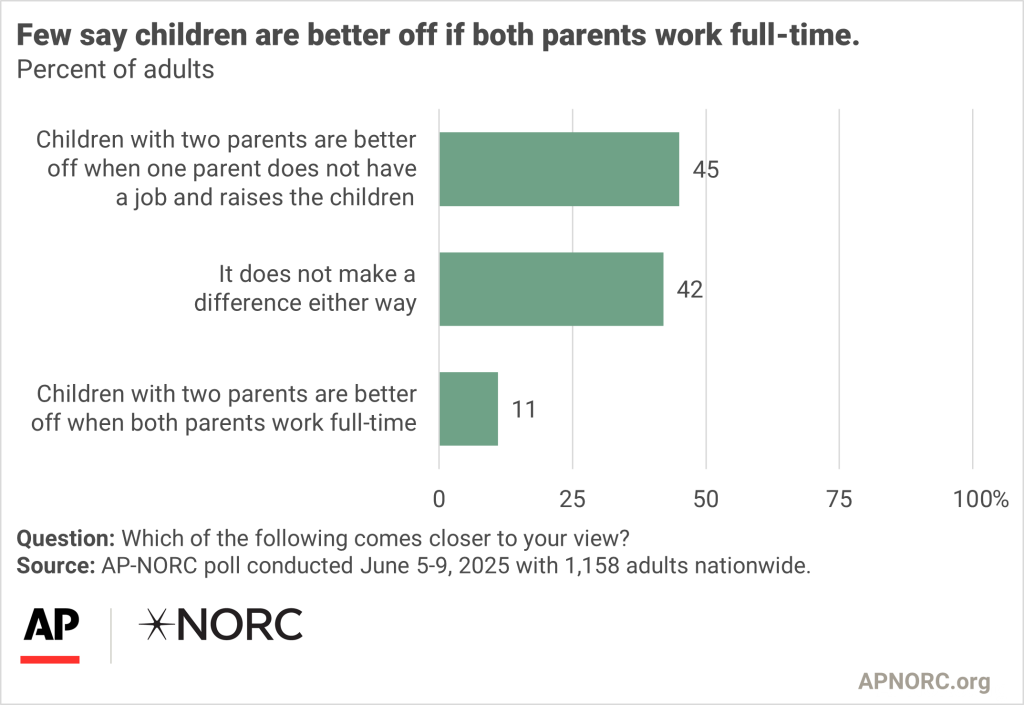
A majority of those who feel children are better off if one parent stays at home do not think it matters which parent actually does, but 4 in 10 say it should be the mother.
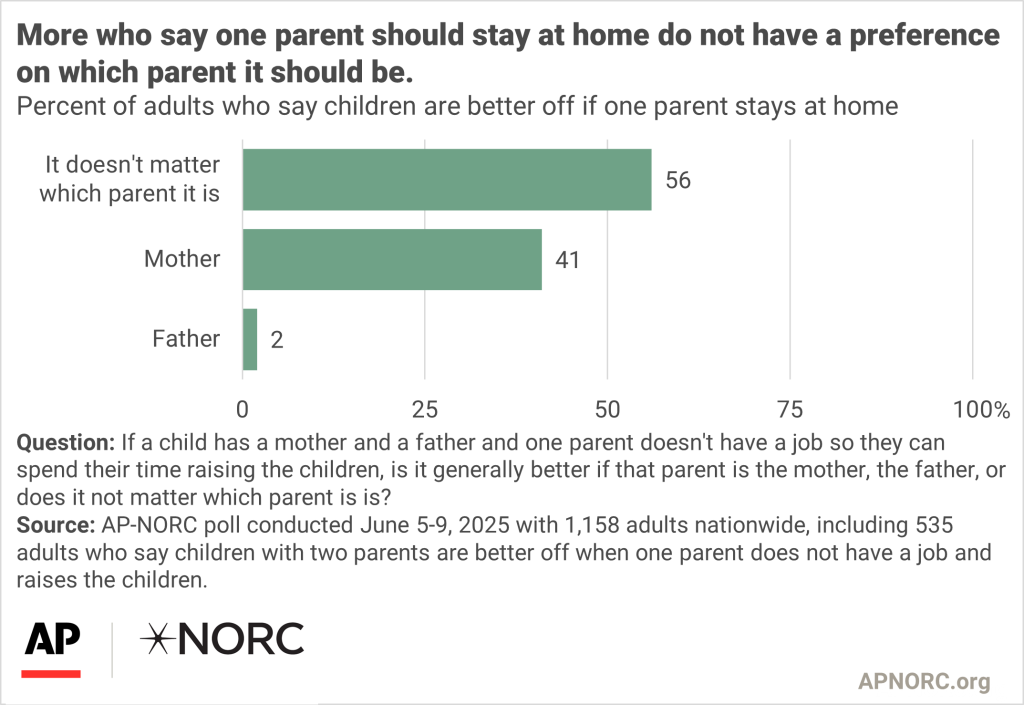
The nationwide poll was conducted June 5-9, 2025 using the AmeriSpeak® Panel, the probability-based panel of NORC at the University of Chicago. Online and telephone interviews using landlines and cell phones were conducted with 1,158 adults. The overall margin of sampling error is +/- 4.0 percentage points.
- Suggested Citation: AP-NORC Center for Public Affairs Research. “Few concerned with declining birthrates, but many worry about the costs of child care and favor paid family leave.” (June 2025). https://apnorc.org/projects/few-concerned-with-declining-birthrates-but-many-worry-about-the-costs-of-child-care-and-favor-paid-family-leave/




